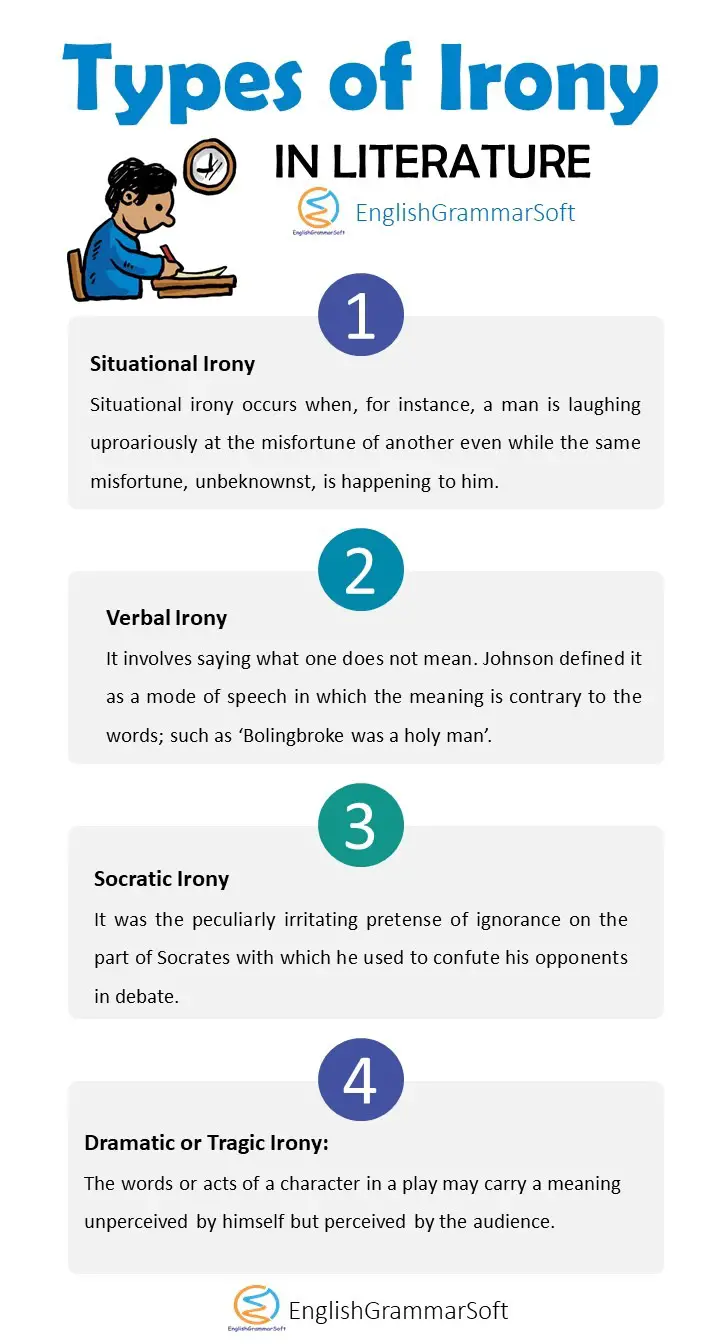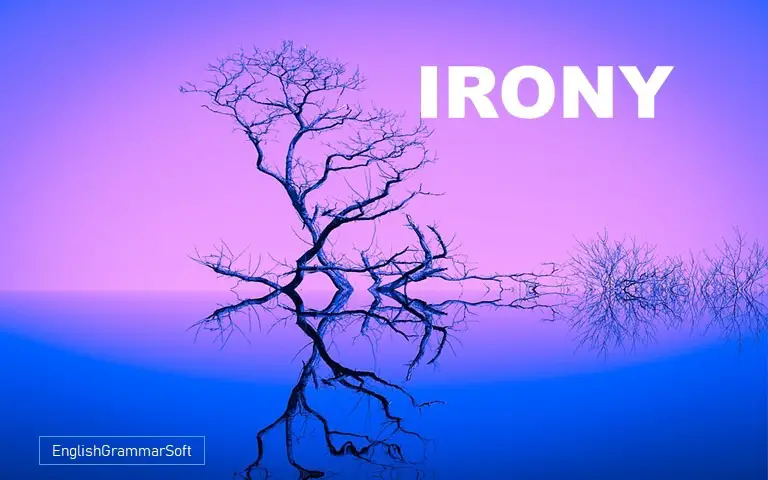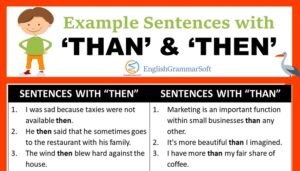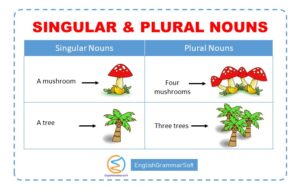Different Types of Irony in Literature with Examples
Irony Definitions
a. There is a contrast between what is said and what is meant, or between appearance and reality.
b. A mode of discourse for conveying meanings different from, and usually opposite to, the professed or ostensible ones.
c. The contrast between appearance and reality is called irony.
It was first known use in 1502.
Types of Irony
There are different types of irony, though they fall into two main categories:
- Situational
- Verbal
Situational Irony
Situational irony occurs when, for instance, a man is laughing uproariously at the misfortune of another even while the same misfortune, unbeknownst, is happening to him. Aeschylus, Sophocles, Euripides, Plato etc. are famous for situational irony.
Verbal Irony
Verbal irony involves saying what one does not mean. Johnson defined it as a mode of speech in which the meaning is contrary to the words; such as ‘Bolingbroke was a holy man’.
Special Forms of Irony
Apart from Irony in this general sense, two special forms of irony may be noted:
- Socratic Irony
- Dramatic or Tragic Irony
a) Socratic Irony:
It was the peculiarly irritating pretence of ignorance on the part of Socrates with which he used to confute his opponents in debate. Socrates would innocently ask his opponent for a definition of one of the most familiar notions of ethics. Socratic irony implies a pose of ignorance assumed in order to entice others into a display of supposed knowledge and self-contradiction.
b) Dramatic or Tragic Irony:
The words or acts of a character in a play may carry a meaning unperceived by himself but perceived by the audience. The irony resides in the contrast between the meaning intended by the speaker and the added significance seen by others. Othello’s allusion to the villain who is about to deceive him as ‘honest lago’ is an example of Tragic Irony.
Irony vs. Sarcasm
Irony is likely to be confused with sarcasm but it differs from sarcasm in that it is lighter and less harsh in its working though in effect it is probably mere cutting because of its indirectness.
Functions of Irony
Irony has many functions. It is often the witting or unwitting instrument of truth. It chides, purifies, refines, deflates, scorns and ‘sends up’. It is not surprising, therefore, that irony is the most precious and efficient weapon of satirist.
Purpose to Use Irony
Actually irony intense the effect of tragedy or comedy. In tragedy irony served to heighten the tragic effect and in comedy it served to heighten the comic effect.
Examples of Irony in Literature
1. In “King Lear” by Shakespeare:
Goneril and Regan’s words for King Lear
“Goneril says her father that he is dearer to her “than eyesight, space and liberty”. Regan says that all joys in life are meaningless to her beside the joy which her love for him. After division of kingdom we find that these two daughters making the adverse comments for their father”.
2. In “Oedipus Rex” by Sophocles”
It is a classic example of dramatic irony because throughout the play, we see several instances where the audience knows more than the characters in the play. In the beginning of the play to find Laios’ killer and to kill him or banish him from the kingdom. Oedipus exclaims, “we could be saved only by tracking down Laios’ killers only by killing them or sending them into exile.” If Oedipus had known in the beginning that he was Laios’ killer, he would have never made such an oath.
3. In “Dr. Faustus” by Christopher Marlowe
There is a dreadful irony pervading in Dr. Faustus, and this irony operates at the verbal level. When Dr. Faustus first summons Mephistophilis, it is his own accord. Mephistophilis informs Faustus that
“when devils hear a human being ready to renounce the scriptures and his Saviour Christ, they fly to him in hope to get his glorious soul”
Later, Faustus mocks religion by using religious jargon to describe the supernatural, for example,
“These metaphysics of magicians and necromantic books are heavenly”, which is ironic because he refers to the works of the devil to be “heavenly”.
4. In “Pride and Prejudice” by Jane Austen
One of the most prominent features of the literary style of Jane Austen is her frequent use of irony. Verbal irony is present in profusion in Pride and Prejudice. The oft-quoted opening sentence of the novel is one of the finest examples of verbal irony:
“It is truth universally acknowledged that a single man in possession of a good fortune must be in want of a wife”.
The statement in fact encapsulates the ambitions of the empty-headed Mrs. Bennet, and her desire to find a good match for each of her five daughters.
5. In “The Prologue to the Canterbury Tales” by Chaucer
In the Prologue his remarks about the Knight that
‘He was a verray, parfit gentil knight’ are straightforwardly respectful, but his generous tribute to the Monk ‘A manly man, to been an abbot able’ should leave us wondering whether he means that most abbots were appointed for their worldliness and self-indulgence.
When he rounds off the description of the Merchant by remarking:
“For sothe he was a worthy man with alle” Chaucer’s irony is obvious, for he has just disclosed the pilgrim’s dishonesty and hypocritical manner.
Similarly, that ‘verray parfit praktisour’ the Physician, although described in terms which recall the Knight, observes a code which inverts the standards of truth, honor and liberality which the Knight strives to uphold. Here Chaucer’s seeming praise is doubly ironic.
6. In Shakespeare’s Julius Caesar:
“Yet Brutus says he was ambitious; and Brutus is an honorable man”.
A statement made several times in a speech by Mark Antony in the play Julius Caesar, by William Shakespeare. The speech is Antony’s funeral oration over Caesar, whom Brutus has helped kill. “Brutus is an honorable man” is ironic, as Antony is attempting to portray Brutus as ungrateful and treacherous. He succeeds in turning the Roman people against Brutus and the other assassins. (Source)

Further Reading
- Differences between Metaphor and Metonymy
- Synecdoche Examples in Literature
- Figures of Speech with Examples
- Antithesis Examples in Literature
- Euphemism Figure of Speech
- Pun Figure of Speech
- Metonymy Classification & Examples
- What is a simile in literature? How to write a good simile?
- Types of Metaphor with Examples
- Apostrophe as a Figure of Speech
- Personification with Examples
- Hyperbole Definition and Examples
- Fable Meaning and Examples in Literature
- What is Epigram in Figure of Speech?






